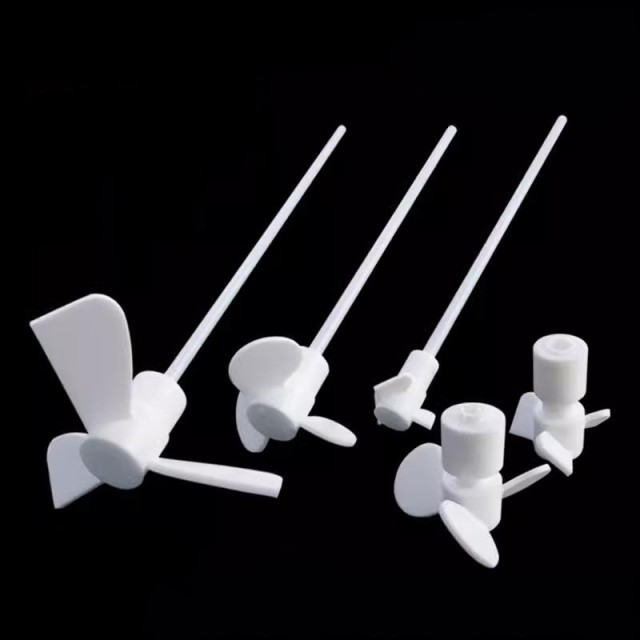
PTFE material
Custom PTFE Teflon Parts Manufacturer Laboratory High Temperature Mixing Paddle Mixer
Item Number : PTFE-23
Price varies based on specs and customizations
- Material
- PTFE
- Specification
- See the form
Shipping:
Contact us to get shipping details Enjoy On-time Dispatch Guarantee.
Why Choose Us
Easy ordering process, quality products, and dedicated support for your business success.
Introduction
The PTFE mixing paddle mixer, known for its high-grade PTFE material, ultra-low friction, extreme durability, and excellent chemical resistance, finds extensive use in various scientific and industrial applications.
- Biochemical Laboratories: Utilized for stirring solutions with precision, ensuring smooth mixing without introducing contaminants.
- Chemical Processing Industries: Ideal for handling aggressive chemicals due to its high resistance to corrosive substances.
- Mechanical and Chemical Industries: Used in packing materials for valves and pumps, and in protective clothing due to its abrasion and chemical resistance.
Details & Parts
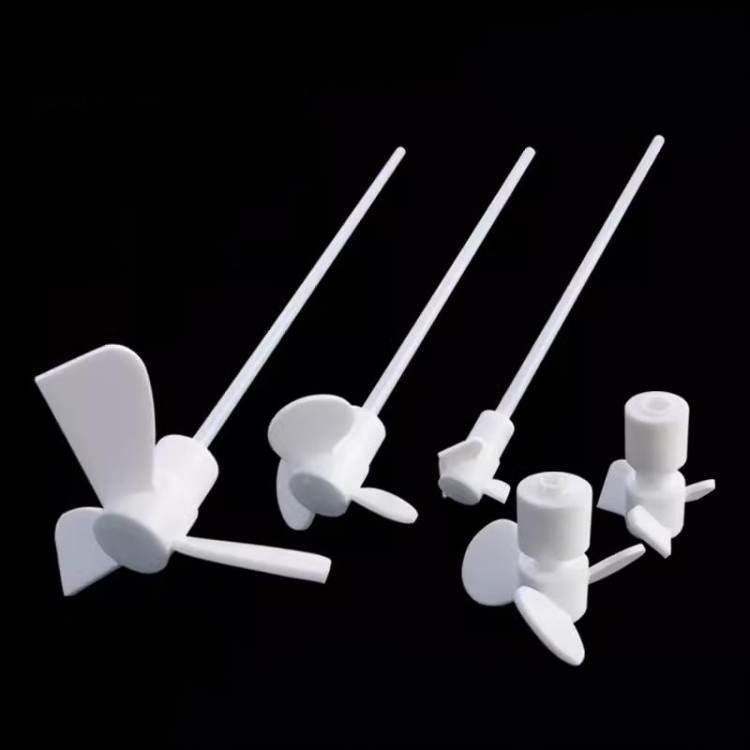
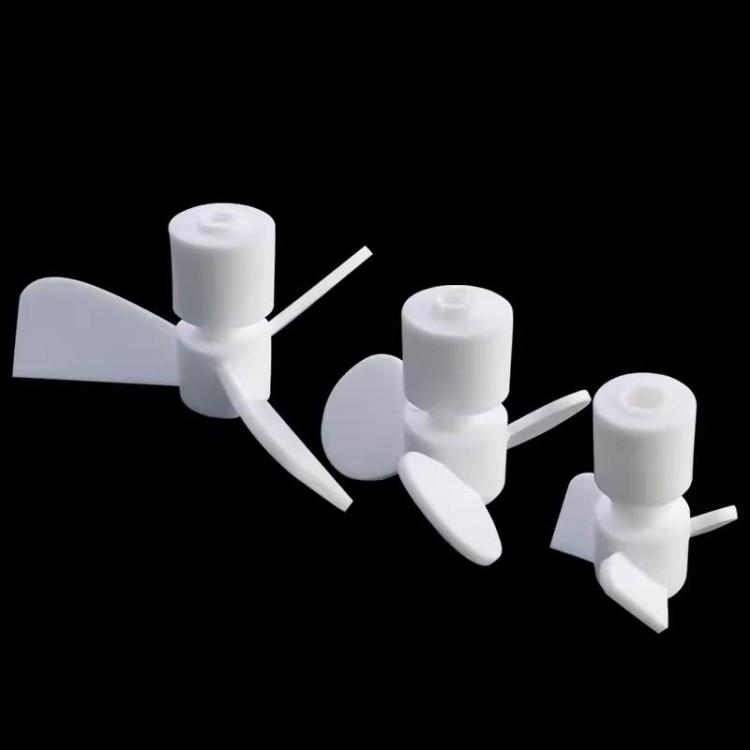
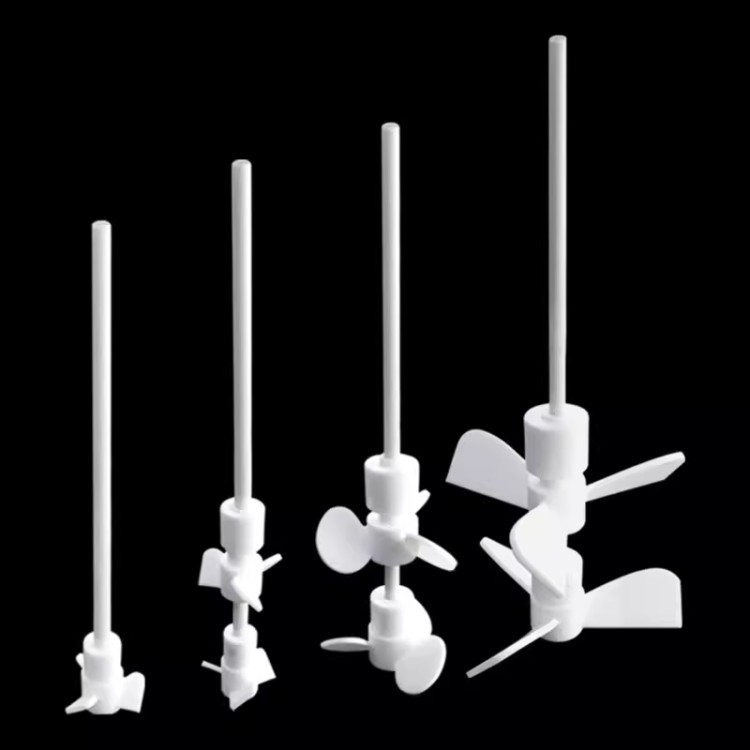

Technical specifications
Double -layer three -leaf mixing paddle specification size:
| Model | Length of the rod | Leaf exhibition | Rod diameter | |||
|---|---|---|---|---|---|---|
| 300*40*7 | 300mm | 40mm | 7mm | |||
| 300*60*7 | 300mm | 60mm | 7mm | |||
| 300*80*7 | 300mm | 80mm | 7mm | |||
| 400*60*7 | 400mm | 60mm | 7mm | |||
| 400*80*7 | 400mm | 80mm | 7mm | |||
| 400*100*7 | 400mm | 100mm | 7mm | |||
| 300*40*8 | 300mm | 40mm | 8mm | |||
| 300*60*8 | 300mm | 60mm | 8mm | |||
| 300*80*8 | 300mm | 80mm | 8mm | |||
| 400*60*8 | 400mm | 60mm | 8mm | |||
| 400*80*8 | 400mm | 80mm | 8mm | |||
| 400*100*8 | 400mm | 100mm | 8mm | |||
| 400*140*8 | 400mm | 140mm | 8mm | |||
| 500*100*8 | 500mm | 100mm | 8mm | |||
| 500*140*8 | 500mm | 140mm | 8mm | |||
| 600*100*8 | 600mm | 100mm | 8mm | |||
| 600*140*8 | 600mm | 140mm | 8mm | |||
| More styles can be customized... | ||||||
Three -impew wheel specification size:
| Model | Leaf diameter | Leaf width | Middle hole | |||
|---|---|---|---|---|---|---|
| 40*7 | 40mm | 40mm | 7mm | |||
| 60*7 | 60mm | 60mm | 7mm | |||
| 80*7 | 80mm | 80mm | 7mm | |||
| 100*7 | 100mm | 100mm | 7mm | |||
| 40*8 | 40mm | 40mm | 8mm | |||
| 60*8 | 60mm | 60mm | 8mm | |||
| 80*8 | 80mm | 80mm | 8mm | |||
| 100*8 | 100mm | 100mm | 8mm | |||
| 140*8 | 140mm | 140mm | 8mm | |||
| More styles can be customized... | ||||||
Advantages
The PTFE mixing paddle mixer offers a range of advantages that make it a superior choice for laboratory and industrial applications. Here are some of the key benefits:
- Chemical Resistance: Made from high-quality PTFE, this mixer is resistant to a wide range of acids, alkalis, and organic solvents, ensuring durability and longevity in harsh chemical environments.
- Temperature Stability: PTFE's high-temperature resistance properties allow the mixer to operate effectively in extreme temperature conditions, making it suitable for a variety of high-temperature processes.
- Low Friction Coefficient: The low friction coefficient of PTFE ensures smooth operation and reduces wear and tear, enhancing the mixer's efficiency and lifespan.
These advantages highlight the PTFE mixing paddle mixer's suitability for demanding mixing tasks in research and production settings, where reliability, safety, and precision are paramount.
Designed for You
KinTek provide deep custom made service and equipment to worldwide customers, our specialized teamwork and rich experienced engineers are capable to undertake the custom tailoring hardware and software equipment requirements, and help our customer to build up the exclusive and personalized equipment and solution!
Would you please drop your ideas to us, our engineers are ready for you now!
Trusted by Industry Leaders

FAQ
How Does The PTFE Stir Plug Ensure Safety And Stability During Use?
Is The PTFE Stir Plug Easy To Install And Use?
What Are The Benefits Of Using A PTFE Mixing Paddle Mixer In Laboratory Experiments?
4.8 / 5
Speedy delivery! Received my mixer in record time, and it exceeded my expectations in terms of quality and durability.
4.7 / 5
Excellent value for money! This mixer offers top-notch quality and technological advancement at a reasonable price point.
4.9 / 5
Top-tier quality! The durability and chemical resistance of this mixer make it a standout choice for laboratory managers.
4.8 / 5
Impressive durability! This mixer can withstand harsh conditions without deformation, a reliable tool for any laboratory setting.
4.7 / 5
Technological advancement at its finest! The PTFE mixing paddle mixer offers cutting-edge features for precise stirring in labs.
4.9 / 5
Flawless performance! From ultra-low friction to chemical resistance, this mixer excels in every aspect.
4.8 / 5
High-grade quality! The PTFE material used in this mixer ensures premium performance and lasting reliability.
4.7 / 5
Versatile functionality! Perfect for various scientific research applications, this mixer offers precision and ease in stirring solutions.
4.9 / 5
Outstanding chemical resistance! This mixer maintains its integrity even when dealing with aggressive chemicals, a must-have for labs.
4.8 / 5
Smooth operation guaranteed! The low friction coefficient of this mixer ensures efficient stirring with minimal wear and tear.
4.7 / 5
Compact and adjustable design! The PTFE stir plug's unique design provides stability and safety during operation, enhancing control over the stirring process.
4.9 / 5
Reliable and durable! This mixer offers superior resistance to chemicals and extreme temperatures, making it ideal for demanding lab environments.
4.8 / 5
Versatile agitation! The reinforced PTFE stirrer can handle a wide range of viscosities, ensuring adaptability to different mixing needs.
4.7 / 5
Pressure and vacuum resistant! This mixer can operate under varying conditions, suitable for diverse applications in research and production.
4.9 / 5
Unbeatable quality! The PTFE mixing paddle mixer stands out for its exceptional chemical resistance and temperature stability.
4.8 / 5
Superior technology! This mixer's design and features make it a reliable and precise tool for challenging mixing tasks.
4.7 / 5
Excellent performance! The PTFE stir plug offers standard port compatibility and adjustable tightness for seamless integration and stable operation.
4.9 / 5
Stellar value! The benefits of this mixer, from chemical resistance to low friction, make it a top choice for laboratory managers.
REQUEST A QUOTE
Our professional team will reply to you within one business day. Please feel free to contact us!
Related Products

Custom PTFE Teflon Parts Manufacturer for PTFE Measuring Cylinder 10/50/100ml
PTFE measuring cylinder are a rugged alternative to traditional glass cylinders. They are chemically inert over a wide temperature range (up to 260º C), have excellent corrosion resistance and maintain a low coefficient of friction, ensuring ease of use and cleaning.
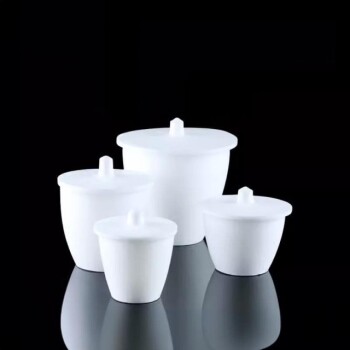
Custom Machined and Molded PTFE Teflon Parts Manufacturer with PTFE Crucible and Lid
PTFE crucibles, made from pure Teflon, offer chemical inertness and resistance from -196°C to 280°C, ensuring compatibility with a wide range of temperatures and chemicals. These crucibles feature machine-finished surfaces for easy cleaning and prevention of contamination, making them ideal for precise laboratory applications.
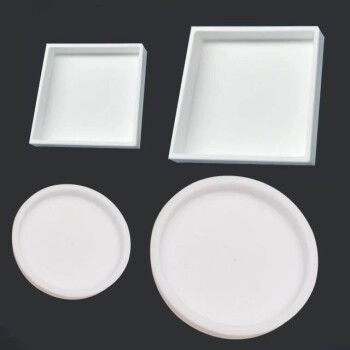
Custom PTFE Teflon Parts Manufacturer for PTFE Containers
PTFE container is a container with excellent corrosion resistance and chemical inertness.

Custom PTFE Teflon Parts Manufacturer for PTFE Tweezers
PTFE tweezers inherit the excellent physical and chemical properties of PTFE, such as high temperature resistance, cold resistance, acid and alkali resistance, and corrosion resistance to most organic solvents.
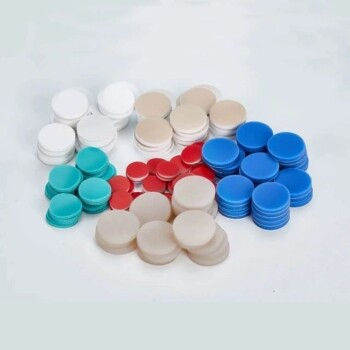
Custom PTFE Teflon Parts Manufacturer for Gaskets and More
Gaskets are materials placed between two flat surfaces to enhance the seal. To prevent fluid leakage, sealing elements are arranged between static sealing surfaces.

Custom PTFE Teflon Parts Manufacturer for Magnetic Stirring Bar
The PTFE magnetic stirring bar, made from high-quality PTFE, offers exceptional resistance to acids, alkalis, and organic solvents, coupled with high-temperature stability and low friction. Ideal for laboratory use, these stirring bars are compatible with standard flask ports, ensuring stability and safety during operations.

Custom PTFE Teflon Parts Manufacturer PTFE Beaker and Lids
The PTFE beaker is a laboratory container that is resistant to acid, alkali, high and low temperatures and is suitable for temperatures ranging from -200ºC to +250ºC. This beaker has excellent chemical stability and is widely used for heat treatment samples and volume analysis.

Custom PTFE Teflon Parts Manufacturer for Culture Dish and Evaporation Dish
The PTFE culture dish evaporating dish is a versatile laboratory tool known for its chemical resistance and high-temperature stability. PTFE, a fluoropolymer, offers exceptional non-stick properties and durability, making it ideal for various applications in research and industry, including filtration, pyrolysis, and membrane technology.

Custom PTFE Teflon Parts Manufacturer for Three-Necked Round Bottom Flask
PTFE flask, is a versatile laboratory container made from PTFE, offering exceptional chemical resistance, temperature stability, and non-stick properties. Ideal for handling corrosive substances and high-temperature applications, these flasks are essential in various laboratory procedures, including heating, mixing, and storage of chemicals.
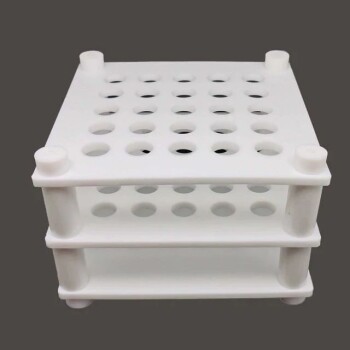
Custom PTFE Teflon Parts Manufacturer for Centrifuge Tube Racks
The precision-made PTFE test tube racks are completely inert and, due to the high temperature properties of PTFE, these test tube racks can be sterilized (autoclaved) without any problems.
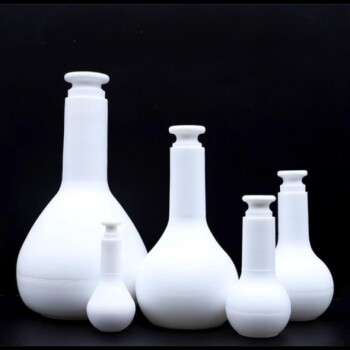
Custom PTFE Teflon Parts Manufacturer for F4 PTFE Volumetric Bottle
The PTFE Volumetric Flask, a robust alternative to glass and PP flasks, excels in measuring both acidic and alkaline liquids. Characterized by its chemical inertness, translucency, and wide volume options, this flask ensures a non-leachable, ultra-clean background. Its non-stick surface simplifies cleaning and maintenance, making it ideal for harsh laboratory conditions.

Custom PTFE Teflon Parts Manufacturer for PTFE Buchner Funnel and Triangular Funnel
The PTFE funnel is a piece of laboratory equipment used primarily for filtration processes, particularly in the separation of solid and liquid phases in a mixture. This setup allows for efficient and rapid filtration, making it indispensable in various chemical and biological applications.

Custom PTFE Teflon Parts Manufacturer for Sampling Solution Sample and Dry Powder Spoons
The PTFE sampling spoon, also known as a solution spoon or sample spoon, is a crucial tool for accurately introducing dry powder samples in various analytical processes. Made from PTFE, these spoons offer excellent chemical stability, corrosion resistance, and non-stick properties, making them ideal for handling delicate and reactive substances in laboratory settings.

Custom PTFE Teflon Parts Manufacturer for PTFE Stirring Bar Recovery Rod
This product is used for stirrer recovery, and is resistant to high temperature, corrosion, and strong alkali, and is almost insoluble in all solvents. The product has a stainless steel rod inside and a polytetrafluoroethylene sleeve outside.
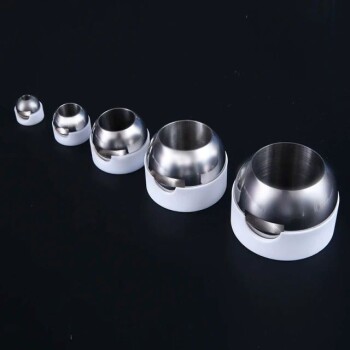
Custom PTFE Teflon Parts Manufacturer for PTFE Ball Valve Seat
Seats and inserts are vital components in the valve industry. As a key component, polytetrafluoroethylene is usually selected as the raw material.
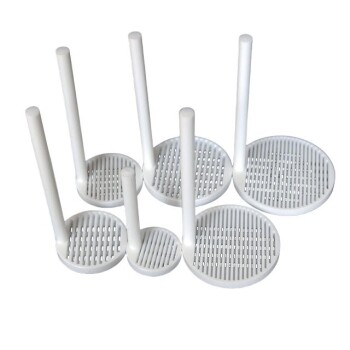
Custom PTFE Teflon Parts Manufacturer for Cleaning Racks
PTFE cleaning racks are mainly made of tetrafluoroethylene. PTFE, known as the "King of Plastics", is a polymer compound made of tetrafluoroethylene.

Custom PTFE Teflon Parts Manufacturer for Hydrothermal Synthesis Reactor Polytetrafluoroethylene Carbon Paper and Carbon Cloth Nano-growth
Acid and alkali resistant polytetrafluoroethylene experimental fixtures meet different requirements. The material is made of brand new polytetrafluoroethylene material, which has excellent chemical stability, corrosion resistance, airtightness, high lubricity and non-stickiness, electrical corrosion and good anti-aging ability, and can work for a long time at temperatures from -180℃ to +250℃.

Custom PTFE Teflon Parts Manufacturer for PTFE Mesh F4 Sieve
PTFE mesh sieve is a specialized test sieve designed for particle analysis in various industries, featuring a non-metallic mesh woven from PTFE filament. This synthetic mesh is ideal for applications where metal contamination is a concern . PTFE sieves are crucial for maintaining the integrity of samples in sensitive environments, ensuring accurate and reliable results in particle size distribution analysis.

Custom PTFE Teflon Parts Manufacturer for Conductive Glass Substrate Cleaning Rack
The PTFE conductive glass substrate cleaning rack is used as the carrier of the square solar cell silicon wafer to ensure efficient and pollution-free handling during the cleaning process.
Related Articles

Innovative Application of PTFE in Mechanical Seals
PTFE has become one of the core materials in the field of mechanical seals due to its unique chemical stability, low friction coefficient (0.04-0.15), wide temperature range (-268°C to +315°C) and excellent corrosion resistance (pH 0-14).

The key role of PTFE in semiconductor manufacturing: from gas pipelines to electrical insulation
From high-purity gas delivery pipelines to precision electrical insulation components, the multi-faceted application of PTFE in the semiconductor industry chain provides important guarantees for the purity, stability and reliability of the manufacturing process.

Basic Mixing Equipment in the Laboratory
Overview of essential laboratory mixing devices and their functionalities.

Overview of Basic Laboratory Pumps
An overview of various types of laboratory pumps including constant flow, oil-free vacuum, rotary vane, diaphragm, chemical hybrid, molecular, injection, and circulating water pumps.

PTFE seals: the invisible guardian of industrial leakage prevention
PTFE Seals are used to prevent liquid or gas leakage and are widely used in valves, pumps, and piping systems.

Molecular Distillation: An Efficient Separation and Purification Technology
Explore the principles, applications, and benefits of molecular distillation in various industries.

Comprehensive Guide to Rotary Vane Vacuum Pumps
An in-depth analysis of the structure, working principle, applications, and advantages of rotary vane vacuum pumps.

Solutions for Removing a Stuck Spatter Ball from a Rotary Evaporator
Guidelines and techniques for removing a stuck spatter ball from a rotary evaporator, including shaking, knocking, baking, freezing, and smashing.

Laboratory Jacketed Vessels
Overview of jacketed vessels, their types, and applications in various industries.

Basic Laboratory Purification Equipment Overview
An overview of essential purification equipment used in laboratories, including water purification, solvent evaporation, and waste treatment systems.

The Thermodynamics of Patience: Mastering the Five-Port Cell
Precision in electrochemistry requires balancing thermal control with material limits. Learn to manage heat without compromising your PTFE seals or data integrity.

The Architecture of Silence: Why Material Choice Defines Electrochemical Truth
Explore how High Borosilicate Glass, PTFE, and POM create the perfect chemically inert environment for accurate electrochemical testing.